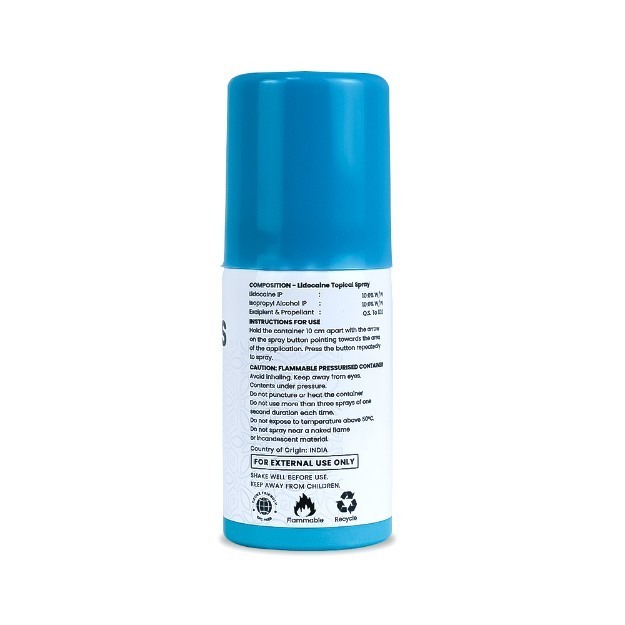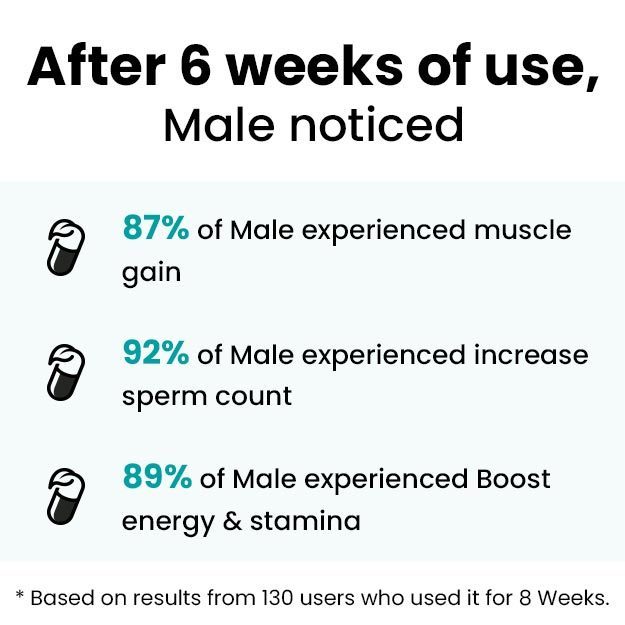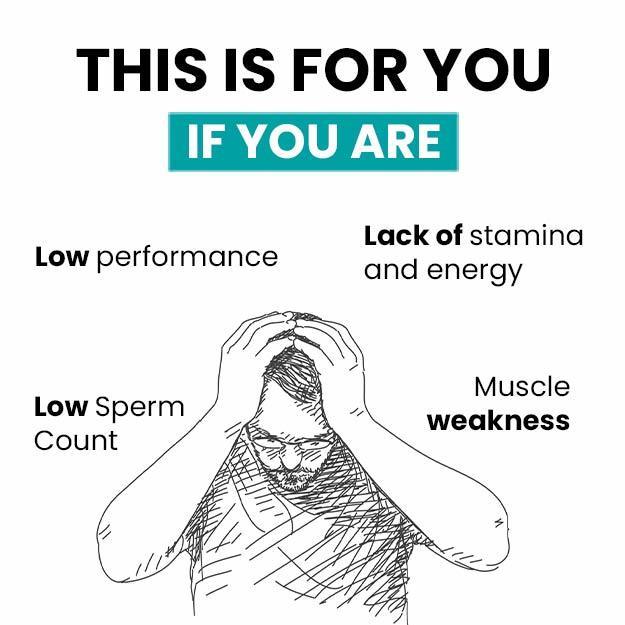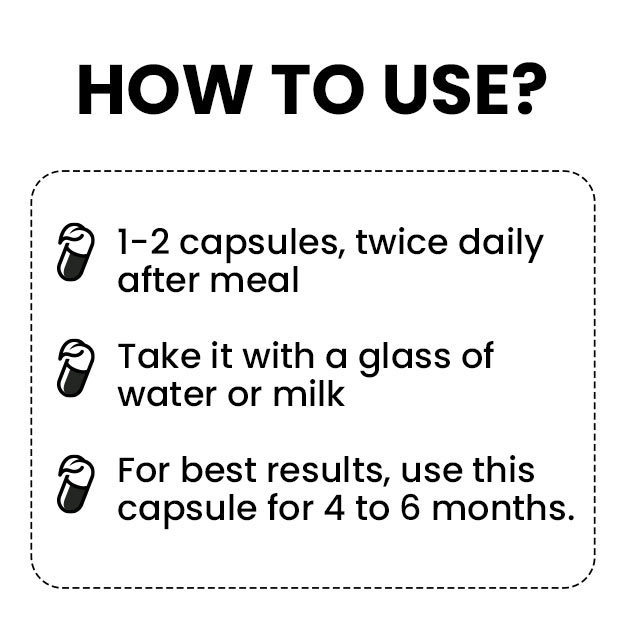What Is Masturbation?
Masturbation is a natural and safe way to make the body feel pleasure, relieve sexual tension and know your body. People of all genders do masturbation. Masturbation actually does not harm the body in any way. However, excessive masturbation can negatively affect your relationships and daily life. Apart from this, masturbation is a fun, normal and healthy act. That's why today we will tell you the benefits and disadvantages of masturbation -
Read more - (Types of masturbation)
- Study About Masturbate
- Benefits Of Masturbation
- Causes of Masturbation
- What Is The Right Age For Masturbation?
- Masturbation Side Effect On Skin
- Side Effects Of Masturbation In Male Daily On Skin
- Side Effects Of Masturbation In Male Once A Week
- Side Effects Of Masturbation In Male Daily
- How Many Times Should A Man Release Sperm In A Week?
- Is It Healthy To Not Masturbate?
- Is Masturbation Good Or Bad For Health?
- What Are The Benefits Of Ejaculating A Lot?
- What Are The Benefits Of Quitting Masturbation?
- Does Masturbation Cause Weakness?
- Is Daily Masturbation Good For Health?
- What Will Happen If You Don't Masturbate?
- Negative Effects Of Masturbation To The Brain
- How To Treat Masturbation?
- How To Stop Masturbation?
- Remedies To Quit Masturbation
- Side Effects of Masturbation
- Summary
Study About Masturbate
Study - Masturbation is common among people of all ages and plays an important role in a healthy sex life. Research has found that about 95% of men and 78% of women under the age of 30 masturbate. With age, 57% of men and 41% of women aged 70 to 79 also masturbate.
Masturbation is a normal form of sexual expression that does not involve concerns about pregnancy, sexually transmitted infections, or the availability or interest of a partner. It can help individuals to feel pleasure, and understand their physical responses, which are important for healthy sexual development and improved self-esteem. In fact, masturbation is often used as a treatment for certain sexual issues, such as premature ejaculation and anorgasmia.
Masturbation is common across many countries around the world, including Australia, China, Croatia, Denmark, Finland, Germany, the UK, and the USA. Research shows that men report masturbating more frequently than women. According to the 2009 National Survey of Sexual Health and Behavior (NSSHB), a nationally representative U.S. study of 5,865 men and women aged 14 to 94 years, 28% of men aged 70 and above, 43% of men aged 14–15 and 60–69, and more than half of men aged 16–59 reported engaging in masturbation.
Research indicates that masturbation is common across different age groups and genders. A study published in the Journal of Sexual Medicine reported that approximately 80% of men and 48% of women have engaged in solo masturbation during their lifetime. The frequency tends to be higher among men compared to women. For instance, in a U.S. nationally representative survey, about 64% of men and 40.8% of women reported masturbating in the last month.
Multiple studies have consistently shown that masturbation is a prevalent and age-spanning behavior, particularly among men. According to the National Survey of Sexual Health and Behavior , over half of U.S. men aged 16 to 69 reported solo masturbation in the past month, while only 20% of women did the same—with slightly higher rates (over 40%) among women aged 20–29. Lifetime experience rates from the UK are similarly high: ~95% of men and ~71% of women have masturbated at least once . Despite the positive roles masturbation plays in sexual self-awareness and therapy, concerns persist—particularly surrounding high-frequency behavior. Psychologically, studies (Långström & Hanson, 2006) associate extreme masturbation frequency with reduced sexual and life satisfaction, though these findings are limited by confounding factors like relationship status. Overall, while masturbation is a healthy and common practice, its frequency and context can influence physical and emotional health outcomes.
|
Study / Source |
Population |
Men Reporting Masturbation |
Women Reporting Masturbation |
Key Notes |
|
Herbenick et al. (2010, NSSHB, USA) |
5,865 individuals, aged 14–94 |
43% (14–15 yrs), 50–60% (16–69 yrs), 28% (70+) |
20% overall; >40% (20–29 yrs), 12% (70+) |
Men masturbated more frequently across all age groups |
|
Gerressu et al. (2008, UK) |
National survey |
~95% reported ever masturbated |
~71% reported ever masturbated |
Gender gap in lifetime experience |
|
Gleason et al. (2021, Pandemic study) |
Global trends during COVID-19 lockdown |
Increase in solo masturbation reported |
Increase also noted but less significantly |
Masturbation used as a risk-reduction strategy during social distancing |
|
Ayad et al. (2018) |
Review of sperm quality studies |
Not frequency data, but abstinence effects |
— |
Frequent ejaculation may improve sperm quality contrary to old WHO guidance |
|
Långström & Hanson (2006) |
Swedish sample |
Frequent masturbation linked to lower life satisfaction |
Similar patterns with less intensity |
Did not control for confounders like relationship status |
Read more - (How often should you masturbate?)
Benefits Of Masturbation
Masturbation is a healthy sexual activity. It has many benefits for mental and physical health. According to studies, masturbation has limited benefits. But studies show that sexual excitement can be increased through masturbation.
- Relieves mental stress
- Helps in good sleep
- Improving mood
- Feeling relaxed
- Relieving cramps
- Relieving sexual tension
- For better sex
- Understand your desires and needs better
(Read more - Does masturbation cause erectile dysfunction?)
Causes of Masturbation
Mens do Masturbation for sexual pleasure, is influenced by various biological, psychological, and social factors. It is a natural behavior that often begins in adolescence due to increased sexual hormones and curiosity about body. Masturbation may also serve as a stress reliever, providing temporary pleasure or distraction from emotional turmoil, anxiety, or boredom. It can be an outlet for sexual tension when a partner is unavailable or when one wishes to avoid the complexities of a sexual relationship. Hormonal changes, especially in adolescents, also contribute to the urge to explore sexuality. Additionally, in the absence of sexual education or when cultural and social stigmas restrict open conversations about sex, individuals may turn to masturbation as a means of self-education and coping mechanism.
What Is The Right Age For Masturbation?
There is no universally "right" age for masturbation, as the onset of sexual feelings and desires varies from person to person. For many individuals, the desire to explore one's own body and sexuality begins during puberty, typically between the ages of 12 and 16, though some may experience it earlier or later. It is important to note that masturbation itself is a natural and healthy part of sexual development. Psychologically and emotionally, it can help individuals understand their bodies and sexual preferences, which may lead to healthier sexual relationships in adulthood. However, it is essential that such behaviors be introduced with a proper understanding of consent, boundaries, and sexual health, which can be supported by accurate sex education. Masturbation should not be seen as abnormal or harmful as long as it does not interfere with daily life or responsibilities.
Read more - (Does masturbation cause weight loss?)
Masturbation Side Effect On Skin
Masturbation can sometimes have effects on the skin, especially if it is frequent or done roughly. In some cases, excessive or vigorous masturbation can cause irritation or redness in the genital area. This can happen due to friction or lack of lubrication, which may lead to chafing or minor skin abrasions. Moreover, if the skin is not cleaned properly after masturbation, there is a risk of bacterial infections that can cause rashes, pimples, or other skin conditions. It’s important to practice good hygiene and use appropriate lubrication to reduce any irritation or discomfort. However, in general, masturbation does not have significant adverse effects on skin health when practiced in moderation and with proper care.
Side Effects Of Masturbation In Male Daily On Skin
For men who masturbate daily, the side effects on the skin can vary depending on factors such as technique, lubrication, and hygiene. Frequent masturbation without proper lubrication may lead to dryness, chafing, or irritation of the skin on the penis. The friction from repetitive stimulation can cause redness or soreness, particularly if the skin is sensitive or not properly moisturized. In extreme cases, frequent daily masturbation may lead to skin damage, including small cuts or abrasions. In rare cases, this can cause scarring or infections, particularly if there is poor hygiene. However, when practiced responsibly, such as using lubricant to reduce friction and cleaning the genital area thoroughly afterward, masturbation is unlikely to cause lasting skin issues.
Side Effects Of Masturbation In Male Once A Week
Masturbating once a week typically does not have harmful effects on the skin or overall health. In fact, many men may find that infrequent masturbation allows the skin to recover from any potential irritation caused by friction. With proper hygiene, occasional masturbation can be a healthy part of sexual expression without significant side effects. If done once a week, the skin is less likely to experience the irritation and soreness that can result from daily or too much masturbation. It is important to note that everyone’s body is different, and some individuals may experience slight skin irritation even with less frequent masturbation, depending on factors like skin sensitivity, hygiene, or the use of lubricants.
Read more - (Is masturbation during pregnancy safe?)
Side Effects Of Masturbation In Male Daily
For males who masturbate daily, there can be some potential side effects, although these vary from person to person. On the skin, frequent stimulation without adequate lubrication or hygiene can lead to irritation, redness, or soreness in the genital area. Repeated friction might also result in minor abrasions or skin damage. Psychological effects of daily masturbation can also occur, especially if it becomes a compulsive behavior that interferes with normal life activities. This might include feelings of guilt or anxiety, particularly in cultures where masturbation is stigmatized. It’s important to ensure that masturbation does not interfere with personal relationships, work, or social activities. If practiced mindfully, with proper care, and in moderation, daily masturbation is generally safe.
How Many Times Should A Man Release Sperm In A Week?
The frequency with which a man should release sperm in a week is highly individual and depends on personal desires, physical health, and sexual needs. There is no universally recommended number of ejaculations per week. Some men may feel comfortable with a daily release, while others may prefer once or twice a week. Studies show that frequent ejaculation, especially for men between the ages of 20 and 40, can be beneficial for prostate health. The key is to listen to one’s body and ensure that sexual activity or ejaculation does not become compulsive or interfere with other aspects of life, such as work, relationships, or emotional well-being. Ultimately, the ideal frequency should be what feels healthy and comfortable for the individual.
Is It Healthy To Not Masturbate?
Choosing not to masturbate is a personal decision and can be a healthy choice for some individuals. Some may decide to abstain for religious, spiritual, or cultural reasons, while others may choose not to masturbate due to personal values or health concerns. Not masturbating does not inherently cause harm, as long as it does not lead to feelings of sexual frustration or emotional distress. On the other hand, regular masturbation can have benefits, such as stress relief and self-exploration. If an individual feels uncomfortable or distressed by not masturbating, it might be helpful to explore the reasons behind this decision and address any underlying psychological or emotional factors.
Read more - (Does masturbating reduce testosterone?)
Is Masturbation Good Or Bad For Health?
Masturbation is generally considered to be a normal, healthy activity. In moderation, it is a safe way to explore one’s sexuality and relieve stress. Research has shown that masturbation can help reduce stress, improve mood, and even promote better sleep. It has no harmful physical effects if done in moderation and with good hygiene. In fact, for men, regular ejaculation has been linked to a lower risk of prostate cancer. For women, masturbation can help improve vaginal health and increase self-awareness of sexual desires and preferences. However, if it becomes compulsive, interferes with daily life, or leads to feelings of guilt, then it could have negative emotional or psychological effects.
What Are The Benefits Of Ejaculating A Lot?
Frequent ejaculation, especially for men, may have several health benefits. Research suggests that regular ejaculation can reduce the risk of prostate cancer, particularly in younger men. It also helps to maintain sperm production and can improve the quality of sperm by promoting healthy circulation. Additionally, ejaculation can relieve sexual tension and reduce the risk of developing erectile dysfunction. On a psychological level, frequent ejaculation can improve mood and reduce stress, as it releases endorphins and other "feel-good" hormones. However, balance is important, as excessive ejaculation without recovery time may lead to fatigue or psychological distress.
What Are The Benefits Of Quitting Masturbation?
For some individuals, quitting masturbation may lead to several benefits. These benefits can include an increase in energy, improved focus, and a more positive outlook on life, especially for those who felt that masturbation was becoming compulsive or interfering with other aspects of their lives. Abstaining may also improve one’s self-esteem or encourage healthier sexual behaviors, especially if the person feels that masturbation was previously tied to feelings of guilt or shame. Some individuals report enhanced sexual experiences with partners after a period of abstinence, possibly due to increased sexual sensitivity or desire. However, it is important to approach the decision to quit with a healthy mindset, ensuring that it is not rooted in shame or excessive guilt.
Read more - (Does masturbation increase immunity?)
Does Masturbation Cause Weakness?
If masturbation is done at a normal frequency, then it is not a cause of weakness. But if it is done several times a day and due to this, fatigue, dizziness, or lack of interest in any work starts, then it can be considered "weakness". But this weakness is not physical but mental. To overcome this, it is necessary to improve habits, exercise and adopt a balanced lifestyle.
Is Daily Masturbation Good For Health?
If a person is masturbating every day, but his life is normal, that is, it is not affecting his sleep, food, energy and relationships, then it is normal. But if you are unable to concentrate on work or studies due to masturbating daily, then it becomes a problem. Excessive masturbation can affect the dopamine system of the brain, which can lead to dissatisfaction, irritability, and sometimes even depression.
What Will Happen If You Don't Masturbate?
If a person does not masturbate, there is no significant harm to the body. Semen can also come out on its own in the form of nightfall. It is not necessary that every man has to masturbate. If the person is mentally balanced and his sexual desire is under control, then it is completely normal.
Read more - (5 Types of Sexuality - myUpchar)
Negative Effects Of Masturbation To The Brain
During and immediately after masturbation, neurotransmitters such as dopamine, oxytocin and endorphins are released in the brain, which provide pleasure to the person and relieve stress. This is why this process makes many people feel relaxed and happy. This can reduce the feeling of pleasure in real life. Excessive masturbation can affect a person's concentration, motivation and emotional balance, especially when it becomes a habit. Therefore, masturbation in limited and controlled quantities is more suitable for mental health.
How To Treat Masturbation?
If you feel that the habit of masturbation is affecting your life negatively, then it is treated with a psychological approach. CBT, meditation, time management, lifestyle modification, distance from porn, and setting your own goals are all effective remedies. If the addiction is very severe, seek help from a sex therapist or psychologist.
How To Stop Masturbation?
If you want to quit masturbation, the first step is to understand the reason behind this habit. Are you doing this due to boredom, stress or loneliness? If yes, then find an alternative like playing games, listening to music, meditating, participating in social activities etc. Staying away from porn, reducing screen time, and setting a routine before sleeping will be helpful for you.
Read more - (Superfoods for Sexual Health)
Remedies To Quit Masturbation
Sex is a basic human need, just like food, clothing, and shelter. Masturbation is another natural way to fulfill this sexual need. Approximately 70% of unmarried men masturbate regularly. Therefore, do not consider this habit a disease or feel ashamed about it. However, if you feel that you’ve become addicted to masturbation, it’s important to seek help. Talk to a doctor or counselor and ask about healthy ways to reduce or quit the habit. Professional advice can support your journey towards balance and control. You can also replace masturbation with other productive or engaging activities. The next time you feel the urge, try doing one of the following instead:
- Go for a run
- Write a letter or journal your thoughts
- Spend time with friends
- Take a walk
Side Effects of Masturbation
In general, masturbation does not have harmful side effects. However, if someone uses too much force or friction, it may cause skin irritation, especially if the skin is sensitive. This usually heals on its own. In some cases, frequent masturbation can lead to mild penile swelling (known as edema), which also typically resolves without treatment. Other possible side effects include:
Misconceptions About Masturbation - Some people believe masturbation is wrong due to cultural, religious, or spiritual beliefs. However, masturbation is neither immoral nor unnatural. It is a healthy sexual activity when done in moderation. Still, if you feel conflicted due to personal beliefs, it may help to talk to a trusted friend or seek guidance from a sexual health professional.
Addiction to Masturbation - Some people develop a habitual or compulsive relationship with masturbation. This can affect daily life in the following ways:
- Skipping responsibilities like work or school
- Avoiding social interactions
- Neglecting personal relationships
Missing out on important events - Such addiction may negatively impact your relationships, productivity, and emotional well-being. Too much masturbation can also hinder your academic or professional growth and isolate you from friends and family.
Read more - (What is sexual frustration, symptoms)
Guilt and Emotional Struggles - People who view masturbation as wrong due to their cultural or religious background might experience guilt or shame. However, it’s important to understand that sexual pleasure is a natural part of life and not something to feel ashamed of. If guilt persists, speaking to a friend or therapist can help you deal with these emotions healthily.
Decreased Sexual Sensitivity - Men who masturbate too aggressively or apply excessive pressure may experience reduced sensitivity over time. This can impact natural arousal. The good news is that sensitivity can return by changing techniques and reducing frequency. In a 2024 study, women aged 18–80 used vibrators for three months and showed improvements in sexual health, pelvic floor strength, and lower stress levels.
Masturbation and Prostate Cancer Risk - Ongoing research is being conducted to explore the link between masturbation and prostate cancer. A 2023 study investigated how ejaculation frequency may impact prostate cancer risk across different life stages. The study included 456 men with prostate cancer and 427 men without. It found that men who ejaculated less frequently in the year before the study had a higher risk of developing prostate cancer, especially those with urinary symptoms and low ejaculation rates. However, more studies are needed to confirm these findings.
(Read more – Till what age can a woman be sexually active?)
Summary
Masturbation is a natural and normal sexual activity, which helps in reducing stress and improving sleep. It does not harm the body, if it is done in a balanced manner. But when it becomes a habit and is repeated, it can lead to side effects such as fatigue, lack of concentration, irritability, or distance in relationships. Some people may also feel guilty or depressed, especially when it cannot be controlled. If a person wants to quit, it is most important to understand the reason behind the habit. Staying away from porn and reducing screen time also helps. Gradually, it is possible to control the habit, just patience and a good routine are needed. If the addiction becomes too much, talk to your doctor.
Doctors for sexual disorders and issues

Dr. Hakeem Basit khan
Sexology
15 Years of Experience

Dr. Zeeshan Khan
Sexology
9 Years of Experience

Dr. Nizamuddin
Sexology
5 Years of Experience

Dr. Tahir
Sexology
20 Years of Experience
References
- Ashraf Tashakori, Atefeh Safavi and Sorour Neamatpour. Lessons learned from the study of masturbation and its comorbidity with psychiatric disorders in children: The first analytic study. 2017 Apr; 9(4): 4096–4100. PMID: 28607641
- Christine Elizabeth Kaestle, Katherine R Allen. The Role of Masturbation in Healthy Sexual Development: Perceptions of Young Adults. 40(5):983-94 · February 2011. DOI: 10.1007/s10508-010-9722-0
- Heitham K. Ajlouni, Azhar S. Daoud, Saleh F. Ajlouni, and Kamel M. Ajlouni. Infantile and early childhood masturbation: Sex hormones and clinical profile. 2010 Nov-Dec; 30(6): 471–474. PMID: 21060161
- National Health Service [Internet]. UK; Masturbation Q&A
- Cynthia L. Robbins, MD; Vanessa Schick, PhD; Michael Reece, PhD, MPH; et al. Prevalence, Frequency, and Associations of Masturbation With Partnered Sexual Behaviors Among US Adolescents. Arch Pediatr Adolesc Med. 2011;165(12):1087-1093. doi:10.1001/archpediatrics.2011.142
- Better health channel. Department of Health and Human Services [internet]. State government of Victoria; Masturbation




































